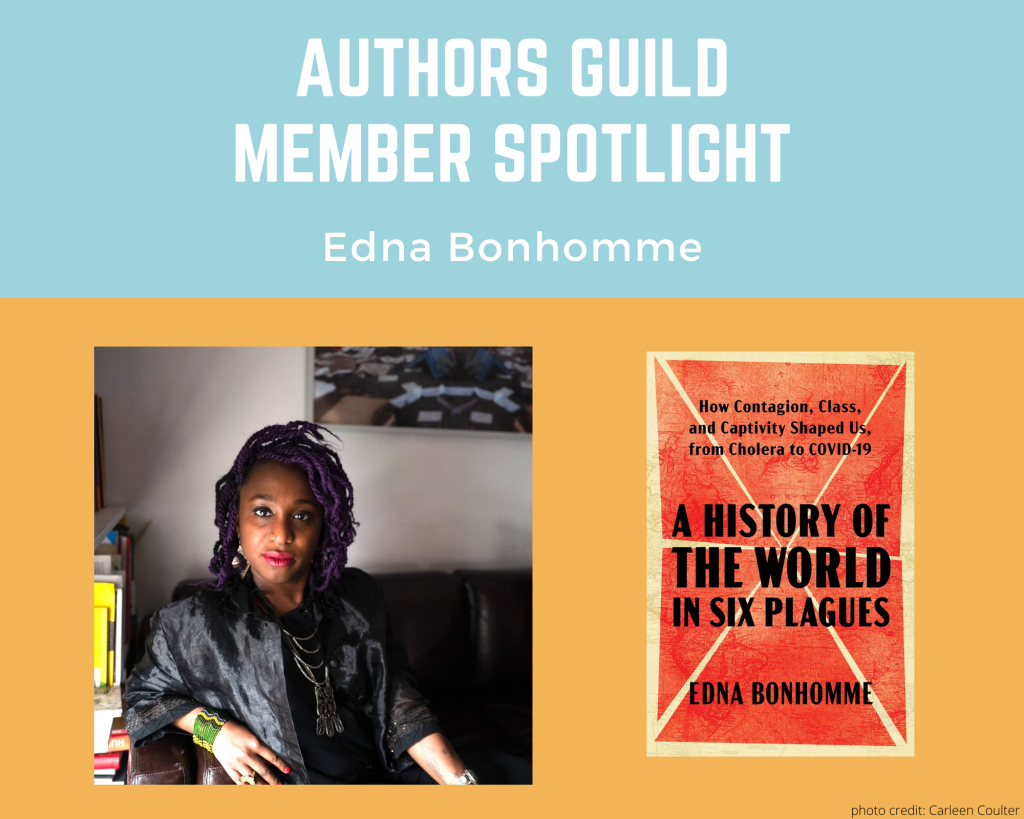Member Spotlight: Edna Bonhomme
March 27, 2025

Why is writing important to you and why do you think it’s an important medium for the world? Hannah Arendt once noted that “Storytelling reveals meaning without committing the error of defining it.” As an art form, storytelling can be expressed in many ways, yet writing conventions provide me with the best tools to manipulate language and prose for my desired effect. As a historian, I wrestle with language to find the most compelling style. This involves combing through my archival evidence, finding a manageable timeline, and bringing the past to life. When I was young, I fell in love with the public library, viewing it as a depository of books. Whether it was Little Women or Shakespeare, I read because the manuscripts activated my imagination. They took me to places I could not afford to travel to and gave me access to people I would never meet. When it is compelling, writing can provide more meaning and color to our lives.
What are your tried and tested remedies to cure writer’s block? When I feel blocked, I read poetry. From Mahmoud Darwish to Rita Dove, poetry draws my attention to life’s joys and sorrows through rhyme, brevity, and evocation. When I briefly engage with poetry, especially those experimenting with their structure or themes, I experience a mild catharsis. From there, I might reflect for five minutes, sit with my thoughts, and then free-write. Once I’ve started playing with language, I turn to my primary writing task.
What is your favorite time to write? I write best when I feel tranquil, when my mind is quiet, and I can contemplate without distraction. After giving birth in the summer of 2024, my time was no longer my own, and I had to tend to an infant’s energy, chaos, and vibrancy. Because of this, early mornings are the best times for me to write while my child sleeps quietly. The freshness of the morning and a newfound optimism vibrate through the air when I write in the morning; for this reason, I enjoy the quietude I experience. From here, I can truly exercise my daily writing routine with discipline.
What’s the best piece of writing advice you’ve ever received and would like to impart to other writers? Read. Read for inspiration. Read with envy. Read with an open heart. And read prose that upsets you. Reading can allow you to see what type of writer you want to be in conversation. When writing a science feature, I read a peer-reviewed microbiology text. While working on an exhibition review, I re-read John Berger’s Ways of Seeing. I turn to a nineteenth-century autobiography when compelled to write a personal essay. My writing has been enhanced by other writers, especially when I get to understand their process, whether they walked through a forest to compose their book or if they indulge themselves with reading philosophical treatises.
What excites you most about being a writer in today’s age I am enamored with the ensemble of writers I have come to know over the years and the ways in which I have connected with them online, long before meeting them in person. I love networks that strengthen our connections, even when separated by oceans and land masses. I enjoy learning about new individuals and embracing the energy and hope of various writers.
Edna Bonhomme’s A History of the World in Six Plagues: How Contagion, Class, and Captivity Shaped Us, from Cholera to COVID-19 is out now with Atria/One Signal Publishers.
